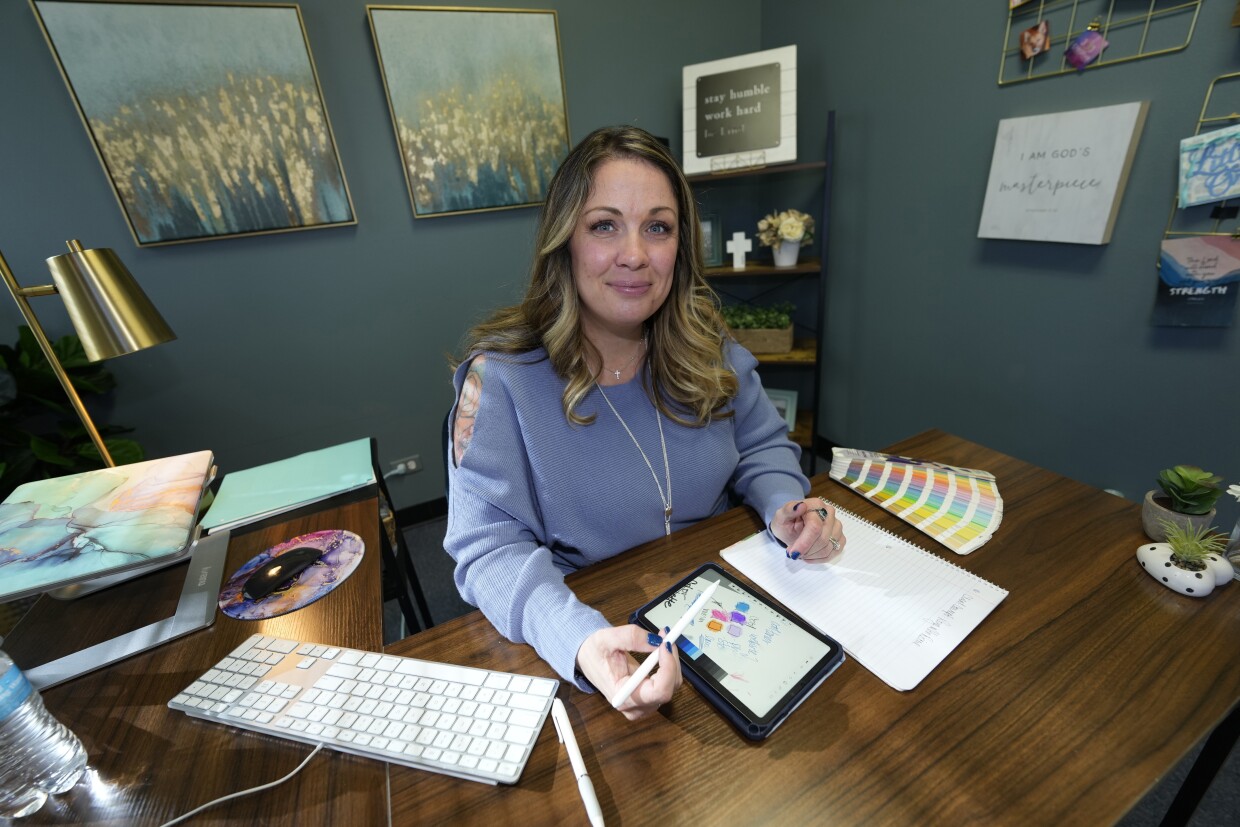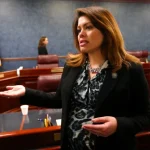
Custom website and graphic designer Lorie Smith doesn’t want to be forced to create websites for same-sex weddings due to her Christian faith, an issue the Supreme Court will debate next month in a free speech case challenging Colorado ‘s anti-discrimination law.
“I love working with people from all different walks of life. And I have clients who identify as LGBT
,” Smith told the Washington Examiner, saying her case isn’t about outright refusing service to members of the LGBT community. “I just cannot create for every message.”
Smith claims Colorado’s anti-discrimination law violates her right to free speech over same-sex marriages, which she contends are contrary to her sincerely held religious beliefs. While Smith has not had the chance to expand her services to include wedding webpages with her business, 303 Creative, due to the state law, she said she’s had aspirations to do so since she was young.
COLORADO WEB DESIGNER’S SUPREME COURT CASE PITS FREE SPEECH AGAINST COMMERCIAL CONDUCT

Web designer Lorie Smith is shown in her office on Monday, Nov. 7, 2022, in the southwest part of Littleton, Colorado.
David Zalubowski/AP
“I want to create for weddings, but I can’t because Colorado is censoring and compelling my speech and forcing me to create custom messages and expressions … celebrating messages that violate my deeply held beliefs,” Smith said.
The small business owner has been fighting to delve into the work for weddings for nearly six years but has been preempted by the state’s Anti-Discrimination Act
, the same law that was used against Masterpiece Cakeshop owner Jack Phillips in numerous lawsuits similar to Smith’s case after he refused to create custom wedding cakes that celebrate same-sex unions.
However, some groups, such as the American Civil Liberties Union, believe Smith’s choice to enter the public market should disallow her from refusing specific requests, even if the content defies her sincere Christian beliefs.
David Cole, the national legal director of the ACLU, attended a debate last month hosted by the legal group representing Smith, the Alliance Defending Freedom. Cole contended that Colorado’s law only requires businesses to serve everyone and does not infringe on free speech, arguing Smith would be within her right to include a statement on her websites saying she disagrees with LGBT marriage, but she cannot refuse service to customers based on sexual orientation.
“You can’t say, ‘I’m serving the public, but I’m not going to serve gay people,'” Cole said. “You can’t say, ‘I’m going to provide a service to opposite-sex couples, but I won’t provide that same service to same-sex couples,’ because now you’re not open to the public.”
The ADF’s CEO and president, Kristen K. Waggoner, also partook in the debate and was questioned by Cole. The ACLU panelist contended that a ruling favoring Smith could allow a baker who is “racist” to refuse service of a birthday cake to a black family, noting that the “First Amendment protects racist beliefs as well.”
But Waggoner rebuked Cole’s argument in an interview with the Washington Examiner, contending that Smith is asking the high court for content-based exemptions and isn’t refusing service based on a client’s sexual orientation.
“Lori isn’t selling hamburgers or cups of coffee. She’s creating. She’s a storyteller,” Waggoner said.
The attorney said the ACLU is “disingenuously claiming” that a ruling favoring Smith would “take us back to truly despicable and ugly times in our nation’s history, [when] people were denied access to essential goods and services based on who they were.”
Asked what would become of Colorado’s law if the Supreme Court granted Smith’s request, Waggoner said “our hope” is that a win for Smith would uphold the First Amendment while allowing the law to remain in place.
“The problem isn’t the law itself. It’s how Colorado was applying the law to Lori and to other artists by trying to compel their expression, and that’s simply not the way these public accommodation laws are meant to be enforced,” Waggoner said, adding that a victory for Smith would also protect the rights of any LGBT artists from being compelled to create messages they might disagree with.
Smith attempted to overturn a lower court ruling when her counsel filed to the U.S. Court of Appeals for the 10th Circuit in 2017. A panel voted 2-1 that Colorado law states she must “work with all people regardless of … sexual orientation.”
CLICK HERE TO READ MORE FROM THE WASHINGTON EXAMINER
In 2018, the Supreme Court gave a partial victory to cake baker Phillips, saying the Colorado Civil Rights Commission had acted with anti-religious bias against him. However, the court did not rule on the broader issue of whether a business can invoke religious objections to refuse service to LGBT clients.
Arguments over the case will be heard by the high court on Monday, Dec. 5. A decision in the case likely won’t be posted for months and will likely come before June 2023.






